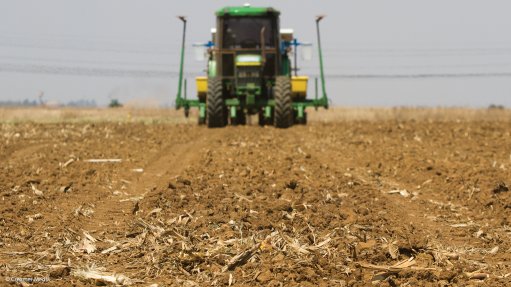
Photo by: Creamer Media
The Food and Agriculture Organization of the United Nations (FAO), the African Union (AU) and international partners have joined hands in efforts to mitigate the consequences of the coronavirus lockdown on Africa's most vulnerable.
Recently, the World Health Organization (WHO) conveyed its concern about the rapid spread of the Covid-19 pandemic in Africa, highlighting that it could have a severe impact on food security.
On Friday, FAO and the AU declared the food and agricultural sector to be an essential service which must continue to function during times of lockdown.
In a joint declaration, they committed themselves to providing Africans with social safety nets; to reduce disruptions to the safe movement and transport of essential people and to the transport and marketing of goods and services; and to keep the continent's borders open for trade in food and agriculture.
The document was introduced at a virtual meeting co-organised by the AU and FAO. All 55 AU member states were represented, 45 at ministerial level.
Josefa Sacko, AU commissioner for rural economy and agriculture, moderated the session.
In his opening statement, FAO director-general Qu Dongyu said that swift, strategic action was necessary to mitigate the impact of the Covid-19 pandemic on food security in Africa.
“Border closures prevent trade and limit food availability in many countries, especially those dependent on food imports,” Dongyu explained.
Angela Thoko Didiza, minister of agriculture, land reform and rural development in South Africa, highlighted the strain caused by lockdowns on a continent where informal markets, rather than supermarkets, provide a source of income for most consumers.
In Africa, the majority of people make their living in the informal economy, for instance as street vendors or manual labourers.
According to Dongyu, logistical strains in food markets should be minimised by shortening the supply chain, producing more, better and, if possible, locally.
European Commissioner for Agriculture Janusz Wojciechowski noted that, among other efforts, the European Union's (EU) aid package for Africa should surpass $20-billion (about R377-billion).
Simeon Ehui, from the World Bank, also outlined support programmes, including the potential of reusing $3.2-billion in uncommitted funds.